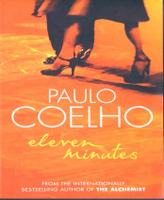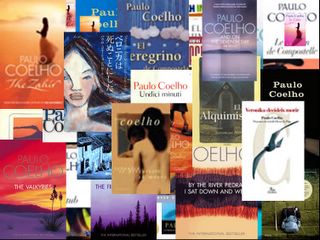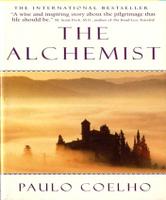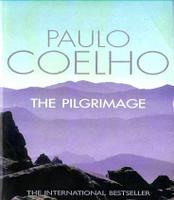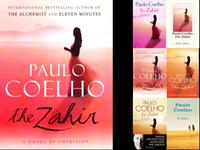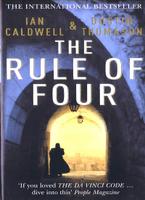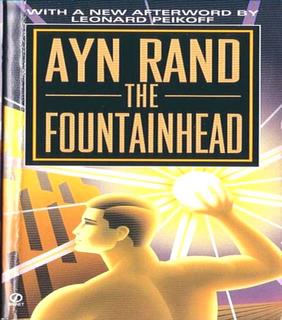
The Fountainhead by Ayn Rand
Publisher: Signet Books; 1952
Price: RM43.90
Local distributor: MPH
"My philosophy, in essence, is the concept of man as a heroic being, with his own happiness as the moral purpose of his life, with productive achievement as his noblest activity, and reason as his only absolute."
—Ayn Rand
Publisher: Signet Books; 1952
Price: RM43.90
Local distributor: MPH
"My philosophy, in essence, is the concept of man as a heroic being, with his own happiness as the moral purpose of his life, with productive achievement as his noblest activity, and reason as his only absolute."
—Ayn Rand
After struggling for several years at various non-writing jobs, Ayn Rand began writing The Fountainhead in 1935. In the iconoclastic character of the architect Howard Roark, she presented for the first time the kind of hero whose depiction was the chief goal of her writing: the ideal man, man as "he could be and ought to be."
"The Fountainhead" tells the story of Howard Roark, a young architect who is a self-contained human being, living entirely for himself-by his own definition of himself. Roark's architectural design of buildings are considered extremely radical and are considered by many fellow professionals as offensive because he fails to pay homage to the artistry of the period, and his stubbornness to collaborate with anyone on any part of his designs. As Roark states at one point, he believes that buildings, like people, have one central theme or idea, and that idea cannot be compromised. Howard Roark struggles as an architect in the face of a successful rival, Peter Keating, and a newspaper columnist, Ellsworth Toohey.
Peter Keating, another architect, who achieve greatness by copying others, while giving the illusion of originality and creativity. In order to achieve his ambition to be a successful architect, Peter Keating was willing to sell his soul, including his wife, when necessary. Thus despite gaining wealth and apparent achievement, Keating's life was filled with emptiness.
Ayn Rand then formulated the common perception that altruism, the fundamental human value, is seen as an evil because the part of society that seeks to achieve this can only do so at someone else expense. In the person of Ellsworth Toohey, a flamboyant newspaper columnist, Rand illustrated how a power hungry personality can manipulate the masses by setting a standard of mediocrity which fosters collectivism.
The story also include a complex romantic affair between the recalcitrant architect Howard Roarke and socialite Dominique Francon. Their relationship develops from one in which they each seek to assert power over the other while achieving sexual release to one of true love between genuine soul mates. Roarke has always shown to be passionate with his work and is totally uncompromising in his creativity in his desire to accomplish his idealism. He will not ever compromise these goals despite enormous pressures to do so. Roarke was not a man to sell out himself as he is totally obsessed with his idealistic convictions.
The Fountainhead was rejected by twelve publishers. It was finally accepted by the Bobbs-Merrill Company. When published in 1943, it made history by becoming a best seller through word-of-mouth two years later, and gained for its author lasting recognition as a champion of individualism.
Ayn Rand returned to Hollywood in late 1943 to write the screenplay for The Fountainhead, but wartime restrictions delayed production until 1948.
This classical book is a novel about a hero, his individual crusade fighting a violent battle against convention, facing of the threat of fascism, and at the same time, having an explosive love affair with a beautiful woman who struggles to defeat him. The confrontation of those themes, along with the amazing stroke of Rand's writing, combine to give this book its long lasting enduring influence. This book is entertaining and thought inspiring.
A must read. 5 Star!
"The Fountainhead" tells the story of Howard Roark, a young architect who is a self-contained human being, living entirely for himself-by his own definition of himself. Roark's architectural design of buildings are considered extremely radical and are considered by many fellow professionals as offensive because he fails to pay homage to the artistry of the period, and his stubbornness to collaborate with anyone on any part of his designs. As Roark states at one point, he believes that buildings, like people, have one central theme or idea, and that idea cannot be compromised. Howard Roark struggles as an architect in the face of a successful rival, Peter Keating, and a newspaper columnist, Ellsworth Toohey.
Peter Keating, another architect, who achieve greatness by copying others, while giving the illusion of originality and creativity. In order to achieve his ambition to be a successful architect, Peter Keating was willing to sell his soul, including his wife, when necessary. Thus despite gaining wealth and apparent achievement, Keating's life was filled with emptiness.
Ayn Rand then formulated the common perception that altruism, the fundamental human value, is seen as an evil because the part of society that seeks to achieve this can only do so at someone else expense. In the person of Ellsworth Toohey, a flamboyant newspaper columnist, Rand illustrated how a power hungry personality can manipulate the masses by setting a standard of mediocrity which fosters collectivism.
The story also include a complex romantic affair between the recalcitrant architect Howard Roarke and socialite Dominique Francon. Their relationship develops from one in which they each seek to assert power over the other while achieving sexual release to one of true love between genuine soul mates. Roarke has always shown to be passionate with his work and is totally uncompromising in his creativity in his desire to accomplish his idealism. He will not ever compromise these goals despite enormous pressures to do so. Roarke was not a man to sell out himself as he is totally obsessed with his idealistic convictions.
The Fountainhead was rejected by twelve publishers. It was finally accepted by the Bobbs-Merrill Company. When published in 1943, it made history by becoming a best seller through word-of-mouth two years later, and gained for its author lasting recognition as a champion of individualism.
Ayn Rand returned to Hollywood in late 1943 to write the screenplay for The Fountainhead, but wartime restrictions delayed production until 1948.
This classical book is a novel about a hero, his individual crusade fighting a violent battle against convention, facing of the threat of fascism, and at the same time, having an explosive love affair with a beautiful woman who struggles to defeat him. The confrontation of those themes, along with the amazing stroke of Rand's writing, combine to give this book its long lasting enduring influence. This book is entertaining and thought inspiring.
A must read. 5 Star!
